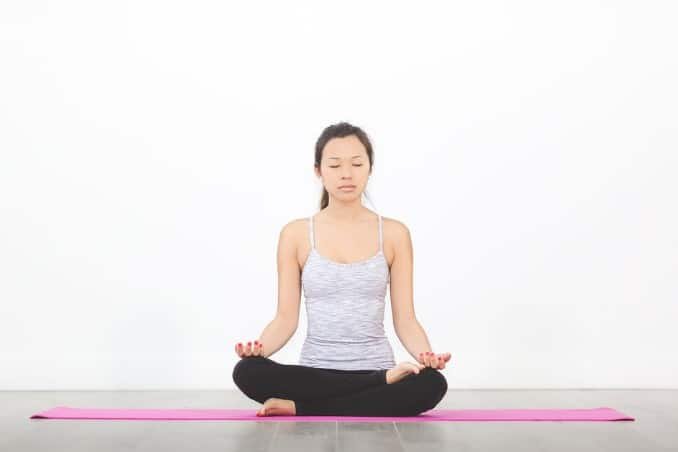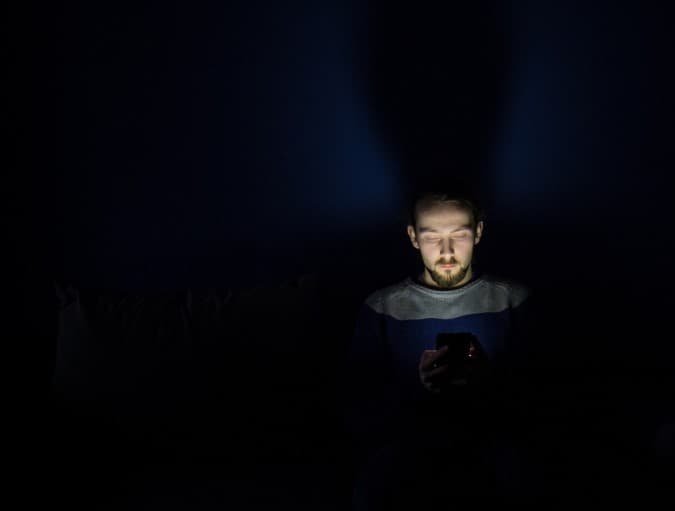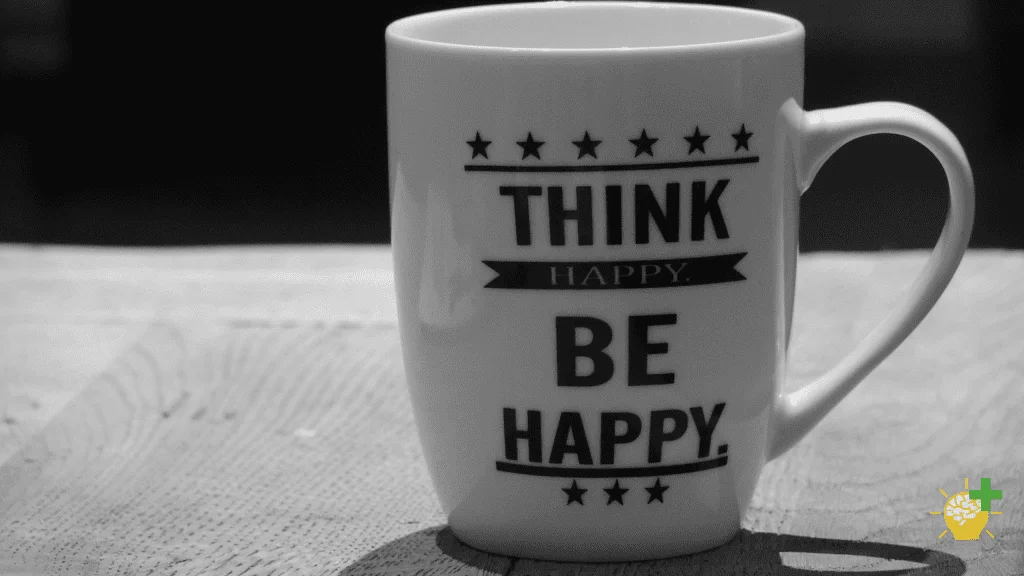Nighttime allows us to rest from the day’s activities and recharge our bodies and minds. But that’s not always the case for people with high anxiety levels.
If you have anxiety, you might find yourself constantly thinking anxious thoughts such as:
- “I’m going to fail.”
- “What happens if I mess this up?”
- “Everyone is going to mock me if I fail at this.”
- “Am I going to die?”
- “I am going crazy because I can’t control my anxiety!”
And guess what? These thoughts hit harder at night, preventing you from having quality sleep. But why is anxiety worse at night?
This article explains why anxiety feels more intense at night and how to reduce these worrisome and unproductive thought patterns. While the tips I’ll share here focus more on nightly activities, consistently practicing them can help reduce anxiety during the day and improve your quality of life.
Let’s get right to it!
Why Is Anxiety Worse at Night?

It is normal to be anxious and worry a little the night before a big event, such as an important business presentation, meeting your future in-laws for the first time, or a job interview.
However, for someone with anxiety, the nighttime often comes with uncontrollable thoughts and worries about mundane things that most people won’t consider a big deal.
But why is the unpleasant experience worse at night? Why does it seem that your mind tends to race more uncontrollably at night than during the day?
There are a few different reasons for this, including:
No Distractions at Night
Daytime offers plenty of distractions such as work, projects, and interactions with family, friends, and work colleagues. This constant flurry of activities distracts your mind from dwelling on worries and anxious thoughts.
Even when you worry about something during the day, you can get up and do something practical about the concern or worry. Doing something practical about your worry reduces the anxiety you feel around the issue.
Unfortunately, these distractions and opportunities to adopt a hands-on approach aren’t usually available at night. And without things to distract you from your worries, your mind has all the time in the world to dwell on anxious thoughts.
Daily Stressors
Coping with predictable and unexpected challenges of day-to-day living can take a toll on us. For example, balancing caring for your kids, dealing with traffic jams, trying to meet work deadlines, and fixing the leaky faucet when you get home can be stressful.
Unfortunately, many of us have to deal with these and many more stressors in our adult lives almost daily. Living with continuous stress puts our fight-or-flight response on high alert, even though there is no immediate threat to our lives. This makes it difficult to relax even at night, especially when combined with fatigue, and can cause evening anxiety.
Poor Sleep Habit
Not getting adequate shuteye time can lead to poor sleep quality and might affect our moods and mental health throughout the next day. Also, performing high-engagement activities and consuming certain foods and drinks before bedtime can interrupt our sleep, keep us awake longer than usual, and fill our minds with racy thoughts.
What Does Nighttime Anxiety Look Like?
Anxiety presents the same symptoms during the day and night, but it can feel more intense at nighttime when you are all alone with fearful and worrisome thoughts.
The common physical and mental symptoms of nighttime anxiety include:
- Nagging headaches
- Continuous sweating even in cold weather
- Needing to urinate more often than normal at night
- Pain in your muscles and joints
- Abdominal pain
- Shaking
- Self-blame and self-criticism
- Racing thoughts
- Negative thoughts
- Worrying too much about the future
- Imagining worse outcomes for future events
- Unsettling emotions
How to Manage Anxiety at Night
Whether you experience mild or severe level anxiety symptoms at night, the following self-help practices can reduce anxious and negative thoughts at night and improve sleep quality.
However, I strongly recommend seeking professional help if you experience panic attack level anxiety, as it can severely affect your quality of life. A nocturnal panic attack often occurs with no obvious trigger and can cause a sleep disturbance.
Practice Meditation

While mediation is somewhat linked to religion, you can do the practice without a religious purpose. Among its many benefits, meditation can reduce stress, increase inner peace, and improve sleep quality.
Consider setting aside between 5 and 15 minutes to meditate before bed for better sleep. Try focusing on your breath and avoid distractions. You can use meditation apps or music to help you prevent distractions and banish anxious feelings.
Consistently practicing meditation is a great relaxation technique you can use to set your mind at ease and help you relax during bedtime.
But if meditation sounds too out of the box for you, try deep breathing exercises before bedtime. Research indicates that diaphragmatic or deep breathing can lessen your stress and anxiety level and increase relaxation for better sleep in adults.
Avoid Potentially Stress-Inducing Activities Before Sleep
Meditation at night will have little to no effect if you go back to do any stress-causing activity right after quieting your mind.
Why is that?
The mind doesn’t have an off button that shuts it down on demand. It takes time for your brain to transition from being active to sleep mode.
For this reason, you want to avoid things that can agitate your mind or cause insomnia before bedtime. Once you are ready to hit the hay, avoid TV, reading emails, or scrolling through social media.
Do Light Exercise

Image source: Pixabay
Exercises are great for your body and mind, but you already know this. However, what many people don’t realize is that performing certain exercises can improve sleep quality.
Remember that not all exercises can help you fall asleep quicker or enjoy good quality sleep. Consider doing low or moderate-intensity exercises, such as brisk walking and pedaling on an exercise bike.
Yoga is a good way to combine meditation, breathing exercises, and slow body movements to lessen physical and mental stress and improve sleep quality.
Write Down Your Thoughts

When your thoughts race around in your mind, and it seems you can’t get a hold of them, one way to reduce the confusion is to write down your thoughts.
Journaling can help you organize your thoughts better, especially if you are worried about the next day’s activities. It can also help with sleep deprivation and sleep anxiety.
You can adopt another slightly different approach and do a brain dump when you start to feel anxious at night. This entails writing whatever comes to your mind without following any particular format or order like you would when making typical journal entries.
Consider doing a brain dump before bed to help reduce anxious thoughts. If writing isn’t your thing, grab a voice recorder and say what comes to your mind without editing – think of it like downloading a stream-of-consciousness type of journal entry.
By letting out worries, concerns, and any other thoughts that come to your mind, you reduce the burden that can prevent you from getting a goodnight’s sleep.
Get Out of Bed if You Can’t Fall Asleep
If you find yourself tossing and turning at night or wake up with anxiety and can’t get back to sleep, don’t force it, as that can worsen the situation.
Get out of bed for a while if you can’t fall asleep. However, avoid doing any activity that will completely deprive you of sleep. Consider doing any of these activities:
- Read a book, but be sure to read something that won’t cause too much excitement. I suggest reading a boring book to help lull you to sleep.
- Grab your headphones and listen to relaxing app sounds designed to help calm your mind.
- Listen to relaxing tunes or soothing music.
Whatever you do, avoid high-engagement activities, and don’t reach for your phone, tablet, or laptop.
Avoid Bringing Screens to Bed

Speaking of phones and other digital devices, you want to avoid bringing them to bed when it is time to sleep.
Ideally, you should put away your phone and other electronic devices at least 30 minutes before retiring for the day. This isn’t just my suggestion but a recommendation from The National Sleep Foundation.
But why should you limit screen time before bedtime?
Here’s the thing.
First, doomscrolling or doomsurfing, which refers to spending too much screen time consuming predominantly negative news online, may affect your mental responses.
Secondly, digital devices, including laptops, tablets, and phones, give off blue light that stimulates your brain and keeps you alert. In other words, blue light from your devices can disrupt your circadian rhythm (the sleep/wake pattern). Too much blue light before bedtime may lead to mood disorders, sleep disorders, and depression in extreme cases.
Try to put away your devices and avoid screens one to two hours before you go to sleep, and you’ll have one less reason to ask, “Why is anxiety worse at night?”
Establish a Pre-Bedtime Routine
A good way to train your brain to “switch off” for the day is to start a pre-bedtime routine and stick to it.
A pre-bedtime ritual signals your sympathetic nervous system (SNS) to go off duty and tells your parasympathetic nervous system (PNS) to take over the night shift. The SNS is responsible for your fight-or-flight response (which comes in handy during the day), and the PNS is responsible for rest-and-digest responses (which you need at night).
Here are some pre-bedtime routine ideas you might want to include as part of your daily winding down ritual:
- Decide a time to turn in for the day and stick to it. Start your pre-bedtime routine around 2 hours to 30 minutes before your set bedtime
- Take a warm bath to prepare your body for sleep
- Stretch, breathe, and do some relaxation exercises
- Listen to music or read a book
- Repeat some positive affirmations
Repeating affirmations before turning in for the day can also help reduce worrisome thoughts. Here are some positive nighttime affirmations you might want to use as soon as tonight!
You might not automatically drift off to sleep the first few days of starting a pre-bedtime routine. But if you are consistent, your brain will get used to the message and start to wind down for the day when you start your bedtime ritual.
Create a Conducive Environment for Sleep

Create the right atmosphere for quality sleep, from the bed to your bedroom’s lighting, temperature, and sound.
You are likely to drift off to sleep quicker if you sleep in a cool, quiet, and dimly light room. However, some people prefer some level of noise and light to fall asleep.
Do whatever works for you, making sure to create a sleep-friendly environment that will minimize tossing and turning all night.
Avoid Stimulants Several Hours Before Bed
All the tips in this article will hardly yield the desired results if you ignore this last one. Try to steer clear of stimulants, such as caffeine in coffee or alcohol, after 3 p.m. because caffeine can make it difficult to fall asleep up to six hours after consumption.
For example, drinking coffee around 4 p.m. is not a good idea if you plan to retire for the day around 9 or 10 p.m.
If you must drink beverages before bed, go with something soothing and relaxing, such as chamomile tea or other herbal teas.
Of course, drinking herbal teas won’t cure anxiety at night, but doing so can increase your chance of getting a good night’s sleep and decrease the possibility of lying awake with racing thoughts for several hours.
Besides, it doesn’t make sense to consume things that will keep you awake if you tend to experience anxiety at night, right?
Bottom Line
Why is anxiety worse at night? The nighttime presents fewer distractions, so your mind focuses more on worrisome thoughts. Also, poor sleep habits create the ideal situation for excessively anxious thought patterns and panic attacks at night.
The good news is that you can use the daytime to work on the issues that cause anxiety for you at night. If you have fewer things to worry about, it will be much easier to put your mind at ease at night.




